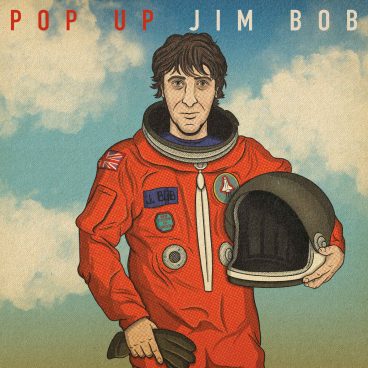Rejected by your family and community, your life becomes so unbearable that you would rather give up everything and run than spend another day amongst people who despise you for being who you are. That’s the story behind Smalltown Boy, a UK No.3 hit single in 1984, with an accompanying video that spelled out unflinchingly the emotional agony and physical danger of being one of society’s outcasts in an age of intolerance.
With the voice of an angel, Smalltown Boy begins with Jimmy Somerville plaintively singing “to your soul… cry…” to the accompaniment of a synthesised piano sound before the Blue Monday beat kicks it up several notches – this is absolutely music that you can and must dance to, but it’s also a bitter indictment of a heartless and intolerant society driving a vulnerable minority into exile. And its message reaches any young person who has ever felt that their family, school and neighbourhood was more a prison than a home.
“Smalltown Boy was coming from a political ideal I had, and it was a narrative of social realism,” Somerville told Madame Soho magazine in 2015. “Also it was one of the first pop videos ever to be made that was telling a story in 3 minutes, like a socio-documentary, drama narrative in the essence of British filmmaking, about social pop. That was kind of groundbreaking; and the fact I had this voice that was counter-tenor with these synthesizers. The thing about Smalltown Boy is that it comes from the heart – and that’s why I think it resonates with people.”
That resonance with young, gay people is evidenced in an article for The Huffington Post by LGBT+ campaigner Shaun Dellenty in 2014, who described his first hearing of Smalltown Boy as “a connection that will remain; in such seemingly insignificant moments of time the soundtrack to our lives is being compiled”.
Dellenty recalls growing up in “a trench of self-loathing, fear and despair” in which homosexual characters in TV and films were only ever featured as victims of violence or camp caricatures. But when he heard the lyrics of Smalltown Boy, he was given a lifeline.
“I knew instinctively what they were about and in doing so they became a kind of instant therapy,” he writes, “permeating the fake version of me I was presenting to the world in a vain attempt to conform, boring straight into my beating gay heart. I finally somehow knew there was another human being facing the same experience as me and at this moment of revelation, an unprecedented outpouring of tears played havoc with my precisely clipped song lyrics.”
There’s at least a thread of autobiography in this story – Jimmy Somerville really did leave his home in Glasgow as a teenager to seek a new life in London. In an article in The Independent in 1997 he said that “The day I was born was the day I arrived at Euston station”. But he was seemingly not bitter about his family home.
“I had good parents,” he said. “My mother had morals and standards and she brought us up to be good kids – some of the families around were just laws unto themselves, it was really tribal. But I was this young confused gay man who was just going off the rails. I hated everybody and everything. It was me against the world, and that’s a big war to start fighting.”
Somerville’s music career went from strength to strength in the Eighties, first with Bronski Beat – who were given their big break thanks to London’s first ever gay and lesbian arts festival, called September in the Pink – and then with The Communards, who had huge hits with cover versions of Don’t Leave Me This Way and Never Can Say Goodbye. His public appearances have been sparing in recent years, but throughout his career, he has remained an active campaigner for the rights of gay people and once chained himself to railings at the Houses of Parliament in a demonstration for Aids activists Act Up. But the principle outlet for his activism has always been music.
“When people say, ‘Oh there’s no room for politics in music’, I think that’s a lot of s***,” he told The Glasgow Herald in 2015 during the promotion for his album Homage. “And I felt even more strongly about that when I was a very angry young man. My politics at the time had been driven by a really quite radical, left-wing socialist, Trotskyist ideal, so I just threw that all together, set it on fire, and hoped for the best.”



